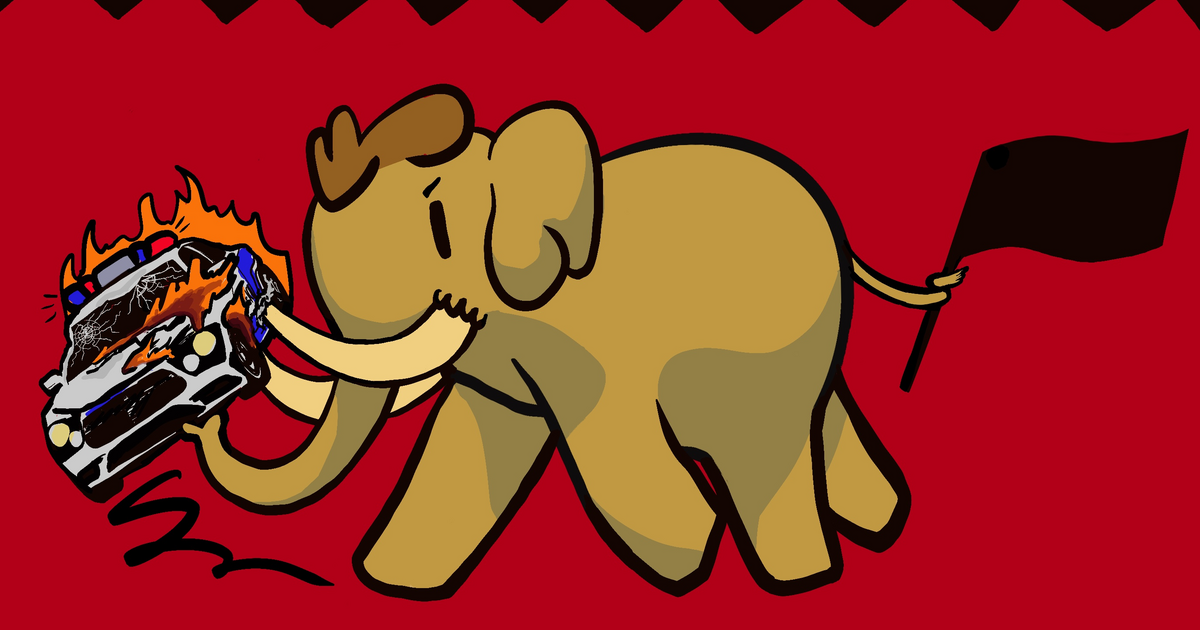DoomsdaysCW<p><a href="https://kolektiva.social/tags/AshTree" class="mention hashtag" rel="tag">#<span>AshTree</span></a> Protection Collaboration Across <a href="https://kolektiva.social/tags/Wabanakik" class="mention hashtag" rel="tag">#<span>Wabanakik</span></a></p><p>"Ash trees, in particular brown ash (used interchangeably with black ash, Fraxinus nigra), are a cultural keystone species for Wabanaki communities and a crucial part of wetland ecosystems in the Northeast. The spread of the invasive forest pest EAB has caused 99% brown ash tree mortality in other areas of Turtle Island, and will have a considerable effect on ecosystems and traditions as it spreads through the Dawnland.</p><p>"Partners of the Ash Protection Collaboration Across Wabanakik’s (APCAW) have been working for 20 years to prepare for the onset of EAB in Northeastern forests. We are committed to identifying research-informed strategies to protect the future of ash in the Dawnland that align with Wabanaki priorities. The purpose of this website is to share practical knowledge with those who seek to take actions to maintain ash on the landscape. If you’d like to receive event announcements in your inbox, sign up for our newsletter here. Read on to find information about the cultural importance of ash, seed collection efforts, and emerald ash borer (EAB) management.</p><p>Why are we called the Ash Protection Collaboration Across Wabanakik?</p><p>"Our name emerged from collaborative conversations about the goals of our shared work. We decided to use the word <a href="https://kolektiva.social/tags/Wabanakik" class="mention hashtag" rel="tag">#<span>Wabanakik</span></a> to refer to the place where we are located in an effort to center Wabanaki language and ways of knowing. Wabanakik is a term with slightly different meanings in each eastern <a href="https://kolektiva.social/tags/Algonquin" class="mention hashtag" rel="tag">#<span>Algonquin</span></a> language, but can be understood in English to mean either 'in the location of the land which is referred to as the <a href="https://kolektiva.social/tags/Dawnland" class="mention hashtag" rel="tag">#<span>Dawnland</span></a>' or 'in the location of the People of the Dawn.' Wabanakik stretches from Newfoundland in the north, to mid-Maine in the south, and parts of Quebec in the west.</p><p>"APCAW members acknowledge that we are located in the homeland of the <a href="https://kolektiva.social/tags/WabanakiConfederacy" class="mention hashtag" rel="tag">#<span>WabanakiConfederacy</span></a>, which includes the <a href="https://kolektiva.social/tags/Abenaki" class="mention hashtag" rel="tag">#<span>Abenaki</span></a>, Maliseet, Mi’kmaq, Passamaquoddy, and Penobscot Tribal Nations. Wabanakik has a ongoing legacy of <a href="https://kolektiva.social/tags/colonialism" class="mention hashtag" rel="tag">#<span>colonialism</span></a>, of <a href="https://kolektiva.social/tags/StolenLand" class="mention hashtag" rel="tag">#<span>StolenLand</span></a>, broken treaties, forced removal and genocide of Wabanaki peoples which have fragmented Wabanaki relationships to land. The People of the Dawn maintain a sacred relationship with brown ash trees since time immemorial. APCAW’s work is to center, protect, and restore this ongoing relationship between Wabanaki peoples and ash ecosystems.</p><p>Who are we?</p><p>"The Ash Protection Collaboration Across Wabanakik (APCAW) is a group of Indigenous and non-indigenous researchers, Tribal members, and forest caretakers working together to bring more awareness of the cultural and ecological significance of ash trees and efforts to conserve them. APCAW continues the initiative set forth by the EAB and Brown Ash Taskforce, which began in the early 2000s to facilitate the collaborative capacity of Wabanaki basketmakers, Tribal Nations, state and federal foresters, and others to prevent, detect, and respond to the EAB. APCAW gives platform to the work of a broad range of partners, including:</p><p>• University of Maine School of Forest Resources </p><p>• Tribal Nations<br /> <a href="https://kolektiva.social/tags/MikmaqNation" class="mention hashtag" rel="tag">#<span>MikmaqNation</span></a>, Presque Isle<br /> <a href="https://kolektiva.social/tags/HoultonBand" class="mention hashtag" rel="tag">#<span>HoultonBand</span></a> of <a href="https://kolektiva.social/tags/Maliseet" class="mention hashtag" rel="tag">#<span>Maliseet</span></a> Indians, Houlton<br /> <a href="https://kolektiva.social/tags/PassamaquoddyTribe" class="mention hashtag" rel="tag">#<span>PassamaquoddyTribe</span></a> at <a href="https://kolektiva.social/tags/IndianTownship" class="mention hashtag" rel="tag">#<span>IndianTownship</span></a><br /> Passamaquoddy Tribe at <a href="https://kolektiva.social/tags/PleasantPoint" class="mention hashtag" rel="tag">#<span>PleasantPoint</span></a> <a href="https://kolektiva.social/tags/Sipayik" class="mention hashtag" rel="tag">#<span>Sipayik</span></a><br /> <a href="https://kolektiva.social/tags/PenobscotNation" class="mention hashtag" rel="tag">#<span>PenobscotNation</span></a>, Indian Island</p><p>• Wabanaki basketmakers and the Maine Indian Basketmakers Alliance</p><p>• State and Federal Forestry Agencies<br /> USDA APHIS<br /> State of Maine Department of Agriculture & Forestry<br /> State, Private, and Tribal Forest Service</p><p>• Conservation organizations and seed saving organizations<br /> The <a href="https://kolektiva.social/tags/WildSeedProject" class="mention hashtag" rel="tag">#<span>WildSeedProject</span></a><br /> <a href="https://kolektiva.social/tags/MaineLandTrustNetwork" class="mention hashtag" rel="tag">#<span>MaineLandTrustNetwork</span></a></p><p>Learn more (includes links to resources):<br /><a href="https://umaine.edu/apcaw/" target="_blank" rel="nofollow noopener noreferrer" translate="no"><span class="invisible">https://</span><span class="">umaine.edu/apcaw/</span><span class="invisible"></span></a> <br /><a href="https://kolektiva.social/tags/Maine" class="mention hashtag" rel="tag">#<span>Maine</span></a> <a href="https://kolektiva.social/tags/MFS" class="mention hashtag" rel="tag">#<span>MFS</span></a> <a href="https://kolektiva.social/tags/EAB" class="mention hashtag" rel="tag">#<span>EAB</span></a> <a href="https://kolektiva.social/tags/EmeraldAshBorer" class="mention hashtag" rel="tag">#<span>EmeraldAshBorer</span></a> <a href="https://kolektiva.social/tags/AshTree" class="mention hashtag" rel="tag">#<span>AshTree</span></a> <a href="https://kolektiva.social/tags/AshTrees" class="mention hashtag" rel="tag">#<span>AshTrees</span></a> <a href="https://kolektiva.social/tags/APCAW" class="mention hashtag" rel="tag">#<span>APCAW</span></a> <a href="https://kolektiva.social/tags/InvasiveSpecies" class="mention hashtag" rel="tag">#<span>InvasiveSpecies</span></a> <a href="https://kolektiva.social/tags/Wabanaki" class="mention hashtag" rel="tag">#<span>Wabanaki</span></a> <a href="https://kolektiva.social/tags/ProtectTheForests" class="mention hashtag" rel="tag">#<span>ProtectTheForests</span></a> <a href="https://kolektiva.social/tags/MaineNews" class="mention hashtag" rel="tag">#<span>MaineNews</span></a> <a href="https://kolektiva.social/tags/Maine" class="mention hashtag" rel="tag">#<span>Maine</span></a> <a href="https://kolektiva.social/tags/SaveTheTrees" class="mention hashtag" rel="tag">#<span>SaveTheTrees</span></a> <a href="https://kolektiva.social/tags/WabanakiCulture" class="mention hashtag" rel="tag">#<span>WabanakiCulture</span></a> <a href="https://kolektiva.social/tags/WabanakiBasketry" class="mention hashtag" rel="tag">#<span>WabanakiBasketry</span></a> <a href="https://kolektiva.social/tags/WabanakiTradition" class="mention hashtag" rel="tag">#<span>WabanakiTradition</span></a> <a href="https://kolektiva.social/tags/Forestry" class="mention hashtag" rel="tag">#<span>Forestry</span></a> <a href="https://kolektiva.social/tags/ProtectTheSacred" class="mention hashtag" rel="tag">#<span>ProtectTheSacred</span></a></p>
Recent searches
No recent searches
Search options
Not available on kolektiva.social.
kolektiva.social is one of the many independent Mastodon servers you can use to participate in the fediverse.

Kolektiva is an anti-colonial anarchist collective that offers federated social media to anarchist collectives and individuals in the fediverse. For the social movements and liberation!
Administered by:
Server stats:
3.5Kactive users
kolektiva.social: About · Profiles directory · Privacy policy
Mastodon: About · Get the app · Keyboard shortcuts · View source code · v4.3.7
#eab
0 posts · 0 participants · 0 posts today
DoomsdaysCW<p>How to protect <a href="https://kolektiva.social/tags/AshTrees" class="mention hashtag" rel="tag">#<span>AshTrees</span></a> and preserve a <a href="https://kolektiva.social/tags/Wabanaki" class="mention hashtag" rel="tag">#<span>Wabanaki</span></a> tradition<br />October 29, 2024</p><p>PORTLAND PRESS HERALD • October 29, 2024</p><p>"How to help protect the brown ash tree used in Wabanaki basketry from the invasive emerald ash borer.</p><p>• Cut, buy, or burn only local firewood.<br />• Monitor for telltale signs of infestation.<br />• If you own land, know if you have brown ash.<br />• If your ash is healthy, contact a forester or <a href="https://kolektiva.social/tags/MaineForestService" class="mention hashtag" rel="tag">#<span>MaineForestService</span></a> about how to keep them alive.<br />• Collect seed pods from healthy brown ash for replanting.<br />• Consider offering Wabanaki artists access to your brown ash."</p><p><a href="https://www.restore.org/maineenvironews/2024/10/29/how-to-protect-ash-trees-and-preserve-a-wabanaki-tradition" target="_blank" rel="nofollow noopener noreferrer" translate="no"><span class="invisible">https://www.</span><span class="ellipsis">restore.org/maineenvironews/20</span><span class="invisible">24/10/29/how-to-protect-ash-trees-and-preserve-a-wabanaki-tradition</span></a> </p><p>Source [may be behind a paywall]:<br /><a href="https://www.pressherald.com/2024/10/29/how-to-protect-ash-trees-and-preserve-a-wabanaki-tradition/" target="_blank" rel="nofollow noopener noreferrer" translate="no"><span class="invisible">https://www.</span><span class="ellipsis">pressherald.com/2024/10/29/how</span><span class="invisible">-to-protect-ash-trees-and-preserve-a-wabanaki-tradition/</span></a><br /><a href="https://kolektiva.social/tags/Maine" class="mention hashtag" rel="tag">#<span>Maine</span></a> <a href="https://kolektiva.social/tags/MFS" class="mention hashtag" rel="tag">#<span>MFS</span></a> <a href="https://kolektiva.social/tags/EAB" class="mention hashtag" rel="tag">#<span>EAB</span></a> <a href="https://kolektiva.social/tags/EmeraldAshBorer" class="mention hashtag" rel="tag">#<span>EmeraldAshBorer</span></a> <a href="https://kolektiva.social/tags/AshTree" class="mention hashtag" rel="tag">#<span>AshTree</span></a> <a href="https://kolektiva.social/tags/AshTrees" class="mention hashtag" rel="tag">#<span>AshTrees</span></a> <a href="https://kolektiva.social/tags/APCAW" class="mention hashtag" rel="tag">#<span>APCAW</span></a> <a href="https://kolektiva.social/tags/InvasiveSpecies" class="mention hashtag" rel="tag">#<span>InvasiveSpecies</span></a> <a href="https://kolektiva.social/tags/Wabanaki" class="mention hashtag" rel="tag">#<span>Wabanaki</span></a> <a href="https://kolektiva.social/tags/ProtectTheForests" class="mention hashtag" rel="tag">#<span>ProtectTheForests</span></a> <a href="https://kolektiva.social/tags/MaineNews" class="mention hashtag" rel="tag">#<span>MaineNews</span></a> <a href="https://kolektiva.social/tags/Maine" class="mention hashtag" rel="tag">#<span>Maine</span></a> <a href="https://kolektiva.social/tags/SaveTheTrees" class="mention hashtag" rel="tag">#<span>SaveTheTrees</span></a> <a href="https://kolektiva.social/tags/WabanakiCulture" class="mention hashtag" rel="tag">#<span>WabanakiCulture</span></a> <a href="https://kolektiva.social/tags/WabanakiBasketry" class="mention hashtag" rel="tag">#<span>WabanakiBasketry</span></a> <a href="https://kolektiva.social/tags/WabanakiTradition" class="mention hashtag" rel="tag">#<span>WabanakiTradition</span></a> <a href="https://kolektiva.social/tags/Forestry" class="mention hashtag" rel="tag">#<span>Forestry</span></a> <a href="https://kolektiva.social/tags/ProtectTheSacred" class="mention hashtag" rel="tag">#<span>ProtectTheSacred</span></a></p>
DoomsdaysCW<p><a href="https://kolektiva.social/tags/EmeraldAshBorer" class="mention hashtag" rel="tag">#<span>EmeraldAshBorer</span></a> Confirmed on <a href="https://kolektiva.social/tags/MountDesertIsland" class="mention hashtag" rel="tag">#<span>MountDesertIsland</span></a> </p><p>Maine Department of Agriculture, Conservation and Forestry sent this bulletin at 04/01/2025 03:42 PM EDT</p><p>AUGUSTA, <a href="https://kolektiva.social/tags/Maine" class="mention hashtag" rel="tag">#<span>Maine</span></a> — "Maine State Forester Patty Cormier today announced that the <a href="https://kolektiva.social/tags/MaineForestService" class="mention hashtag" rel="tag">#<span>MaineForestService</span></a> (<a href="https://kolektiva.social/tags/MFS" class="mention hashtag" rel="tag">#<span>MFS</span></a>) Forest Health and Monitoring Division has confirmed the presence of emerald ash borer (<a href="https://kolektiva.social/tags/EAB" class="mention hashtag" rel="tag">#<span>EAB</span></a>) on Mount Desert Island (<a href="https://kolektiva.social/tags/MDI" class="mention hashtag" rel="tag">#<span>MDI</span></a>) outside of the previously regulated area.</p><p>"A licensed professional arborist in Bar Harbor made the detection. The infested area shows signs of a well-established EAB population, with visible damage to ash trees from public roads.</p><p>"'This is an unfortunate but not entirely unexpected discovery,' said Cormier. 'We’ve known that EAB continues to spread throughout Maine, and we appreciate the vigilance of local arborists and community members. Public awareness is important to detecting and responding to this destructive forest pest.'</p><p>"As a result of this detection, the Maine Department of Agriculture Conservation and Forestry will expand the current EAB quarantine to include all towns on MDI. This non-contiguous quarantine may help slow the spread.</p><p>"Key guidance for landowners, municipalities, and the public includes:</p><p> - <a href="https://kolektiva.social/tags/AshTree" class="mention hashtag" rel="tag">#<span>AshTree</span></a> material should remain on MDI. Logs, branches, or wood waste from removed trees should be disposed of on-site or at an island-based disposal facility.<br /> - Ash chips are not regulated and may be legally transported off the island.<br /> - High-value ash trees that are not heavily infested can be evaluated and may be preserved through systemic insecticide treatment by licensed pesticide applicators. These treatments require periodic reapplication.<br /> - Infested ash trees will decline quickly and become structurally unstable. Property owners and managers are urged to evaluate ash trees near infrastructure for potential treatment or removal.</p><p>"The MFS and collaborators, including the Ash Protection Collaboration Across <a href="https://kolektiva.social/tags/Wabanakik" class="mention hashtag" rel="tag">#<span>Wabanakik</span></a>'s (<a href="https://kolektiva.social/tags/APCAW" class="mention hashtag" rel="tag">#<span>APCAW</span></a>), Sustaining Ash Partners Network (<a href="https://kolektiva.social/tags/SAPNe" class="mention hashtag" rel="tag">#<span>SAPNe</span></a>), and <a href="https://kolektiva.social/tags/USDA" class="mention hashtag" rel="tag">#<span>USDA</span></a> Animal and Plant Inspection Service, continue to support ongoing mitigation efforts, including:</p><p> - Release of biological control organisms from federal partners by MFS through community partnerships.<br /> - Seed collection and protection for future restoration led by APCAW.<br /> - Education and technical support by varied partners.<br /> - Public tree management and replanting through state and federal funding opportunities.</p><p>"'Emerald ash borer is one of the most damaging forest pests we face,' added Cormier. 'By working together—with awareness, early detection, and coordinated response—we can slow its spread and protect Maine’s forest resources.'"</p><p>Learn more:<br /><a href="https://content.govdelivery.com/accounts/MEDACF/bulletins/3d9a239" target="_blank" rel="nofollow noopener noreferrer" translate="no"><span class="invisible">https://</span><span class="ellipsis">content.govdelivery.com/accoun</span><span class="invisible">ts/MEDACF/bulletins/3d9a239</span></a><br /><a href="https://kolektiva.social/tags/InvasiveSpecies" class="mention hashtag" rel="tag">#<span>InvasiveSpecies</span></a> <a href="https://kolektiva.social/tags/Wabanaki" class="mention hashtag" rel="tag">#<span>Wabanaki</span></a> <a href="https://kolektiva.social/tags/ProtectTheForests" class="mention hashtag" rel="tag">#<span>ProtectTheForests</span></a> <a href="https://kolektiva.social/tags/MaineNews" class="mention hashtag" rel="tag">#<span>MaineNews</span></a> <a href="https://kolektiva.social/tags/Maine" class="mention hashtag" rel="tag">#<span>Maine</span></a> <a href="https://kolektiva.social/tags/SaveTheTrees" class="mention hashtag" rel="tag">#<span>SaveTheTrees</span></a> <a href="https://kolektiva.social/tags/WabanakiCulture" class="mention hashtag" rel="tag">#<span>WabanakiCulture</span></a> <a href="https://kolektiva.social/tags/WabanakiBasketry" class="mention hashtag" rel="tag">#<span>WabanakiBasketry</span></a> <a href="https://kolektiva.social/tags/WabanakiTradition" class="mention hashtag" rel="tag">#<span>WabanakiTradition</span></a> <a href="https://kolektiva.social/tags/Forestry" class="mention hashtag" rel="tag">#<span>Forestry</span></a></p>
ExploreLive feeds
Mastodon is the best way to keep up with what's happening.
Follow anyone across the fediverse and see it all in chronological order. No algorithms, ads, or clickbait in sight.
Create accountLoginDrag & drop to upload

